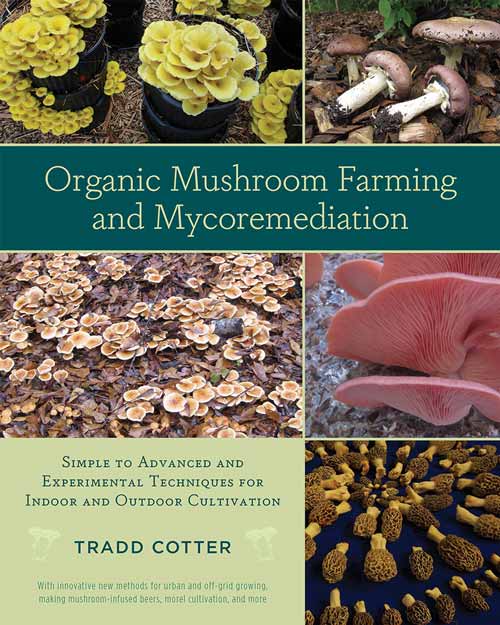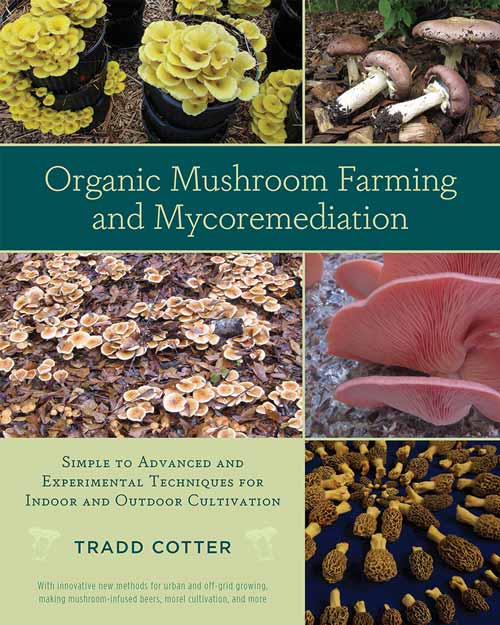Organic Mushroom Farming And Mycoremediation
Author: Tradd Cotter
Paperback
400 pages
7341Members save: $6.00 (15.0%)
List Price:
Couldn't load pickup availability
What would it take to grow mushrooms in space? How can mushroom cultivation help us manage, or at least make use of, invasive species such as kudzu and water hyacinth, thereby reducing dependence on herbicides? Is it possible to develop a low-cost and easy-to-implement mushroom-growing kit that would provide high-quality edible protein and bioremediation in the wake of a natural disaster? How can we advance our understanding of morel cultivation so that growers stand a better chance of success?
For more than 20 years, mycologist Tradd Cotter has been pondering these questions and conducting trials in search of the answers. In Organic Mushroom Farming and Mycoremediation, Cotter offers readers an in-depth exploration of best organic mushroom cultivation practices, shares the results of his groundbreaking research, and offers creative ways to apply cultivation skills … whether the goal is to help a community clean up industrial pollution or to settle down at the end of the day with a cold Reishi-infused homebrew ale.
The book guides readers through both indoor and outdoor cultivation. Covered skills include:
- Integrating wood-chip beds spawned with king Stropharia into your garden
- Building a “trenched raft” of hardwood logs plugged with shiitake spawn
- Producing oysters indoors on spent coffee grounds in a 4-by-4 space or on pasteurized sawdust in vertical plastic columns
For those who aspire to the self-sufficiency gained by generating and expanding spawn rather than purchasing it, Cotter covers lab techniques, including low-cost alternatives that use existing infrastructure and materials.
Cotter also provides readers with insight into his groundbreaking research cultivating morels indoors and out, “training” mycelium to respond to specific contaminants, and perpetuating spawn on cardboard without electricity. Readers will discover information on making tinctures, powders, and mushroom-infused honey; making an antibacterial mushroom cutting board; and growing mushrooms on your old denim jeans.
“This book is much more than a cultivation guide. It is about healing the people and the planet, one mushroom and one cultivator at a time, reversing destructive cycles into creative forces,” writes Cotter in the introduction. “If we think with an opportunistic yet minimalistic approach, much like a mushroom, taking what it needs to survive and then returning resources to its ecosystem so others can use them, the future looks like somewhere I want to be.”

